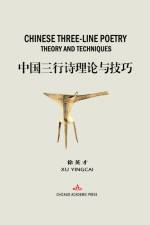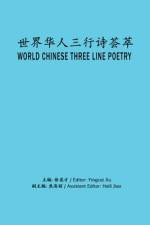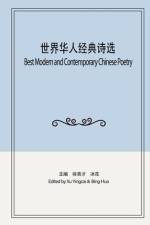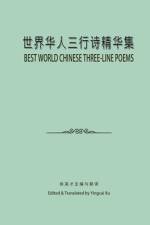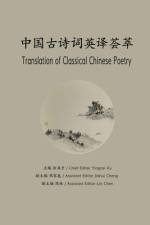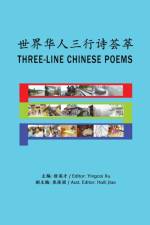- 世界华人三行诗精华集
av Yingcai Xu
307
"Best World Chinese Three-Line Poems" is another carefully composed Chinese three-line poetry collection published after the "World Chinese Three-Line Poetry." If we say the former book focuses on domestic readers, this one aims at English readers. This book is to introduce to the world the Chinese three-line poems. Hence this Chinese and English bilingual edition. Chinese three-line poetry is a new type of poetry developed since the May 4th New Cultural Movement. However, the establishment of this poetic form as fixed poetry is only in recent years. Today, this new form has won the interest of many Chinese poets, and many poets specialize in its creation. As its name suggests, a so-called three-line poem is a poem written in three lines. In deciding how to break the lines, some poets use the end-stopping method and others, enjambement, but no matter how to break the lines, you must compose it in three lines. In most cases, a three-line poem does not exceed 30 Chinese characters, with the title standing as its own or included in the poem. Its most vital element is terse in language but rich in content. For this, it does not pursue rhyme. One can use three-line pomes to express thoughts, artistic conception, and literary tastes, but no matter what to press, a well-written three-line poem must be as subtle yet as profound as possible. It must have rich meaning beyond words and fertile depth in aesthetic values. Although an English tercet can be standalone, it is usually a rhyming stanza in a poem. The rhyming configuration can be AAA, ABA, or mixed. However, a Chinese three-line poem is an independent poem. No matter how you write it, it must have the integrity of complete work: beginning, content, and end. You do not repeat the three lines in a poem. If you do, it becomes a Chinese free verse. Japanese haiku is also composed of three lines. Modern Japanese haiku has broken away from traditional requirements such as 575 onji, Kigo, etc., but its core remains. That is a touching moment in nature, two juxtaposed images, completion in one breath, and emphasis on provoking thoughts. The fundamental differences between Chinese three-line poetry and haiku poetry lie in the following: A Chinese three-line poem is not restricted by any haiku requirements, that is, a touching moment in nature, two juxtaposed images, and completion in one breath. A Chinese three-line poem can write anything and use any technique; It does not haggle about the number of images or the way to break lines. The key is to use any method necessary to acquire profoundness in and beyond the poem. Because of these characteristics, Chinese three-line poetry is a very expressive type of poetry. Because of its uniqueness and popularity in China, we think it is necessary to introduce this type of poetry to the English world. We hope this book can arouse the English world's interest in Chinese three-line poetry.

